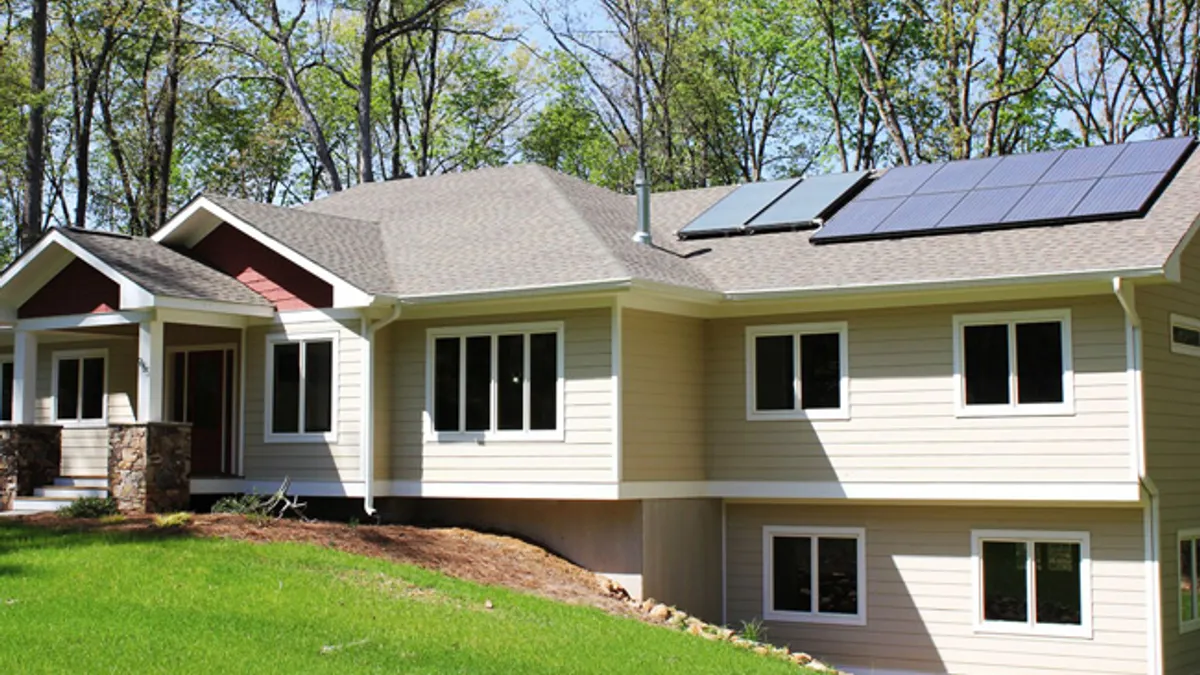Dive Brief:
- Duke Energy and a group of solar advocates and developers announced on Tuesday a net energy metering agreement for North Carolina customers, which was submitted to state regulators for review.
- The proposed agreement includes retail rates based on time of day and when Duke is experiencing peak demand. The plan includes a night-time discount period to encourage customers to charge electric vehicles (EV) overnight.
- Advocates hailed the program for creating pathways to rooftop solar adoption and EV charging, as well as for providing incentives for residential solar customers to use smart thermostats, battery storage and more. This is the second state where Duke has developed a comprehensive net metering plan with stakeholders.
Dive Insight:
The proposal comes in the wake of House Bill 951, signed into law in October by Gov. Roy Cooper (D). The new law and previous 2017 legislation direct state regulators to re-evaluate net energy metering policies.
"Not only does [the program] advance the residential solar sector, it also provides a framework and agreement to work collaboratively on the next generation of non-residential net metering," Peter Ledford, general counsel and policy director at North Carolina Sustainable Energy Association, said in a statement.
Duke Energy crafted the agreement with the North Carolina Sustainable Energy Association; the Southern Environmental Law Center (SELC) on behalf of Vote Solar and the Southern Alliance for Clean Energy; Sunrun and the Solar Energy Industries Association.
The proposed rate design requires approval from the North Carolina Utilities Commission. If regulators approve it, the rates would go into effect for new net metering customers applying in 2023. The parties to the agreement requested expeditious action from North Carolina regulators based on the directives of legislation like HB 951.
Clean energy advocates hailed the expected direct savings for future solar rooftop customers.
"If the full proposal is approved, customers could receive significant up-front savings when adopting solar paired with Duke Energy’s smart thermostat program," David Neal, SELC senior attorney, said in a statement. "In the case of solar panels that are leased, those savings could translate to lower costs over the lifetime of the lease, providing more affordable ways for customers to go solar."
The plan closely mirrors the net energy metering rate design finalized in South Carolina earlier this fall.
However, the North Carolina settlement includes "enhanced [time-of-use] periods that better reflect cost causation," Lon Huber, Duke Energy’s vice president of strategic solutions, said. In North Carolina, "a wider array of factors were considered, resulting in a slightly different outcome than in South Carolina where net metering reform was the only concern.
New time-of-use periods include "more focused, shorter" peak periods that occur only once per day: 6-9 a.m. in the winter and 6-9 p.m. in the summer. The set times for peak and discount periods are meant to create price signals that customers can respond to, including EV charging.
Additionally, a mid-day discount period "reflects the low energy costs due to abundant solar energy resources," Huber said.
"Encouraging load to shift to these periods should both lower renewable integration costs and ensure that solar energy is used productively, rather than causing a situation where solar curtailment is needed," he said.















